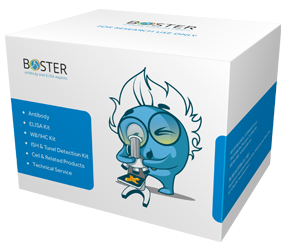Posted on February 16, 2022
What Is BCL 2 Antibody?
Bcl-2 Antibody is able to detect endogenous levels of the Bcl-2 alpha protein total. This antibody is not cross-reactive with Bcl-2 beta or any other Bcl-2 members of the family. Bcl-2 plays a role in survival in response to a broad variety of apoptotic triggers by inhibiting mitochondrial cytochrome release.
It has been linked to controlling mitochondrial calcium homeostasis as well as proton flow. Numerous phosphorylation sites have been identified in Bcl-2, including Thr56 and Ser70, Thr74, and Thr87. It is believed that these phosphorylation spots could be targets of the JNK1/ASK1/MKK7 pathway, and that phosphorylation of Bcl-2 alpha antibody could be a signpost for Mitotic processes.

BCL-2 is an essential regulator of apoptosis, which is able to inhibit or encourage cell death. All members of the family can also be distinguished by their dimerization to enhance the apoptosis process. Bag1 is an example. It has been shown that it forms a heterodimer BCL-2 that results in the increase of the anti-apoptotic effects of BCL-2.
Bax has been proven to play a crucial part in cytochrome c's release from mitochondria and, consequently, start Apoptosis. Bax has a pro-apoptotic effect instead of an anti-apoptotic action on cells. A constitutive expression of BCL2 is a possibility, for instance when there is a translocation of BCL2 to the Ig the heavy chain is believed to be the main cause of the follicular lymphoma.
In the majority of follicular lymphomas, germinal centers that are neoplastic contain large amounts of BCL-2 alpha protein, while normal or hyperplastic germinal centers are negative. Two BCL-2 transcript variants, which are generated by alternative splicing, are distinct in their C-terminal end.
